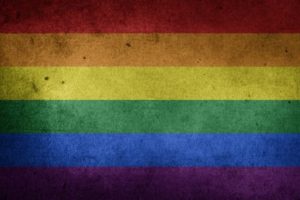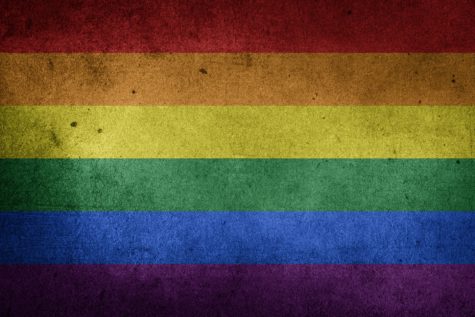RESEARCH TRIANGLE PARK, N.C. — “Hate” crimes against lesbian, gay, bisexual, and transgender people have not abated in the past two decades, despite a public perception of greater societal tolerance, according to a self-funded study by the prestigious North Carolina-based Research Triangle Institute (RTI).
And the greatest source of intimidation and violence, it turns out, comes not from strangers or random violence — but from the families of LGBTQ people, the study found.
RTI researchers, led by Tessaly Mckay, reviewed over a 100 studies on hate crimes against sexual minorities conducted since the 1990s and also teamed up with The Henne Group to conduct original focus group research in LGBTQ communities in San Francisco, New York, Durham, NC and rural Wyoming.

The primary impetus for the study was the passage of HB 2, the state “bathroom bill” that restricts access to public restrooms in North Carolina based on biological sex, as well as last year’s mass shooting at the Pulse nightclub in Orlando.
The researchers found a growing pattern of violence and intimidation against members of the LGBTQ community in schools, workplaces and homes across the country.
But they also expressed special concern about rural areas where LGBTQ individuals often live in less supportive political and cultural climates, and where perpetrators of hate crimes are able to operate with more impunity.
The researchers found that hate crimes were taking their toll on victims by reducing their school involvement and achievement and by increasing their risk of self-abusing behavioral health conditions including sexual risk-taking and suicide.
At the same time, McKay acknowledged that many of the studies they reviewed exhibited limitations in their sampling design and survey methods that made it difficult to quantify current hate crime trends with statistical reliability.
In addition to highlighting LGBTQ vulnerability in schools, McKay’s team noted that family ostracism and domestic violence posed a special threat to LGBTQ individuals who are still living at home with parents and spouses.
“We need more research to better understand what policies will provide LGBTQ+ youth with safer school and home environments, what resources provide LGBTQ+ people who are victims of violence the best support and how we can ultimately create a larger societal climate that doesn’t tolerate persistent, pervasive, lifelong victimization,” McKay said in an RTI news release.
RTI is a major US government contractor that conducts studies across the country and abroad, but enjoys strong roots in North Carolina and the American Southeast where events in recent months have highlighted the plight of LGBTQ communities.
The Institute, which was recently named the world’s most ethical company by Ethisphere, plans to finance and conduct a host of follow-up studies based on the findings of its first report, entitled, “Violence and LGBTQ+ Communities: What Do We Know, and What Do We Need to Know?”

“The Institute, which was recently named the world’s most ethical company by Ethisphere” is not what the linked source says. It’s on a list of 124 companies being recognized in 2017 for their ethics.
Family members know best. If they despise their LGBTQalphabetsoup members, who am I to dare disagree. Families with members who have disgusting and unsanitary sexual practices, these families need our support is discarding their aberrant members. How can I help?
Regford…
I agree. Everything starts with family. A good family should always support healthy mental and physical well being. I’m not all about talking things to death, but sometimes we need to be more explanatory about our positions. “I don’t like it” may be a true statement, I don’t like it either, but an oversimplified statement doesn’t hold much weight against the crafty arguments of those promoting it. For example, my following argument:
As far as the article, I do not support violence (in most cases). I also do not support trying to turn a class of mentally ill people (LGBTandQ?) into a victim class in an effort to spread the population control agenda (Gay is natural/normal). However, if a gay person won’t stay away from my child after being told, or someone won’t stop preaching gay to my child after being told, violence IS coming. I will kill(if necessary)to defend my chiId’s physical and mental well being. I will not allow anyone to mess with my child’s mind. I only let my child go to school because they will steal my child from me, and I can’t stop it….yet. My teaching counters theirs which helps minimize the brain damage. It is a fact that mental illness can and does spread via LEARNED BEHAVIOR and CULTURAL PROGRAMMING of the masses. It is a fact that anything believed to be “good” or “normal” spreads, which then makes it an option in young minds. Especially when the schools are teaching children, yes CHILDREN, to erase their own gender. Not supposed to talk sex to children! The only reason anyone would talk sex to children is to groom them sexually. Wasn’t the movie 1984 that describes the last feat of perfect control of the mind was to finally eliminate sexuality? Gaying up the population is on the way there. Then pediphiles. Yes, pediphiles. NAMBLA is a pediphile organization protected by authority. Then who knows? Probably no people. And before you assume I’m some kind of religious nut, I’m anti-religion(mind control), anti-authority(obedince/mind control),anti-school (indoctrination/mind control), anti-atheist(it’s a religion), anti-collectivist(tribal/gang mentality), anti-money(enslaving tool), and anti-pro choice(which is anti-life). The closest words I can find to call myself is sovereign-agnostic-anarchist, although not quite accurate. Apparently there’s several versions of anarchists which are mostly inaccurate. I’m not a pacifist that will let myself be controled. I believe in eliminating threats from all angles. I’m one of those rare people who cannot be influenced by slick language or hypnotized. I cannot be programmed. Psychological warfare doesn’t work on me either. That’s why I can comprehend the evil genius behind agendas lIke this one. The only way to exert control over me is directly. And that is only because although my mind is equal to theirs(THEY), they have weapons beyond civilian comprehension nobody believe exists. If it were the other way around, everyone would be free of all forms of slavery and evil(authority). So there.
One more thing….The two primary examples the “study” cites are both orchestrated events to push the gay agenda, via claiming they are under attack, like victims.